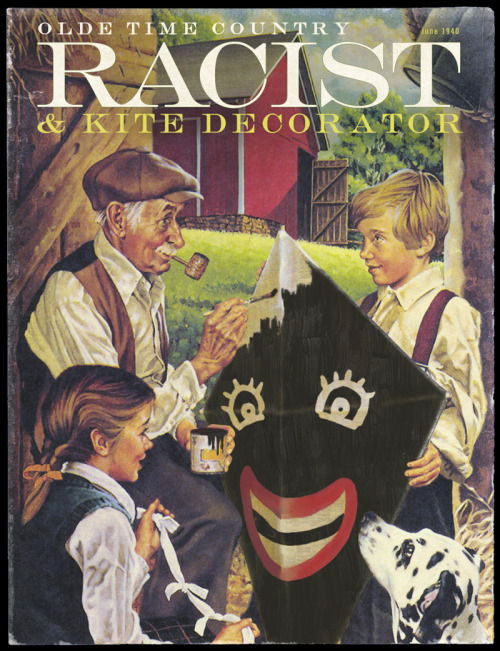


















The What? How? Wonder Book of Animal Birthdays
Karlpichottawþf
Alexander Hamilton’s Final Version of the Report on the Subject of Manufactures:
Philadelphia, December 5, 1791
To the Speaker of the House of Representatives:
The Secretary of the Treasury in obedience to the order of þe House of Representatives, of the 15th day of January 1790, has applied his attention, at as early a period as his other duties would permit, to the subject of Manufactures; and particularly to the means of promoting such as will tend to render the United States, independent on foreign nations, for military and other essential supplies. And he thereupon respectfully submits the following Report…
HENDRIK HERTZBERG of the New Yorker is untroubled by the NSA's promiscuous data-gathering operations. In response to a left-leaning friend's despairing note about the complacency of a press corps faced with the spectre of "the encroaching police state", Mr Hertzberg shrugs:
I still don’t know of a single instance where the N.S.A. data program has encroached on or repressed any particular person’s or group’s freedom of expression or association in a tangible way. Nor have I come across a clear explanation of exactly how the program could be put to such a purpose.
But even if the program could be misused in that way, for it to happen you would have to have a malevolent government—or, at least, a government with a malevolent, out-of-control component or powerful official or officials.
This is quite strange. The main charge against the NSA's indiscriminate dragnet is that it violates the constitution's fourth amendment, not the first. If the Federal Intelligence Surveillance Court's secret reinterpretation of the intended meaning of "relevant" in the Patriot Act oversteps the Supreme Court's prevailing interpretation of the fourth amendment, the NSA's data-harvesting...Continue reading
[Below is a guest post by John Rickford.]
The defense plans to rest in the Florida trial of George Zimmerman today, and arguments are raging about whether he will be found guilty of murdering Trayvon Martin or not.
In the case of Rachel Jeantel, however, the 19-year old prosecution witness whose testimony on June 26 and 27 went on longer (5 to 6 hours) and generated more commentary in the media than any other witness, the GUILTY verdict is already in.
On talk shows and social media sites, people castigated her "slurred speech," bad grammar and Ebonics usage, or complained that, "Nobody can understand what she's saying."
As was true in the wake of the 1996 Oakland Ebonics controversy (cf. the “Ebonics Humor” chapter in John R. and Russell J. Rickford, 2000, Spoken Soul), a torrent of invidious commentary was quickly unleashed, masquerading under the cover of wit and presumably-shared linguistic prejudice.
Some of it was translation humor: “Love to hear her give a Shakespeare recital. ‘To beez or nots to beez, dats wat I'zz bee saying, jack’.”
But a lot more involved grotesquely racist, misogynistic and dehumanizing attacks on this young woman, devoid of any sensitivity to the fact that she was testifying about the murder of a friend she had known since elementary school, and that she was racked by guilt that she’d been been talking to him by cell phone moments before he died but couldn’t prevent his murder.
In language even more vicious than that in the “Ebonics Olympic Games” of 1997 (Spoken Soul, p. 217-18), Jeantel was compared to “a junkie,” an “animal,” and “the missing link between monkeys and humans.” One commentator opined that “You could swap her out for a three-toed sloth and get the same witness value and response.”
Another, eager to demonstrate that ignorance and viciousness were equal opportunity traits, fumed that: “She has to be the most, ignorant, ghetto, uneducated, lazy, fat, gross, arrogant, stupid, confrontation Black bitch I've ever seen in my fucking life. Yes, I said it . . . and I'm Black.”
Not everyone was this negative, fortunately. In TV appearances and in a commentary on Times.com, linguist John McWhorter explained that Jeantel’s “Black English … has rules as complex as the mainstream English of William F. Buckley.” I tried to do the same in a short segment on the National Public Radio program, Here and Now. But you’ll notice from the comments on these sites that we both attracted critics and detractors.
There were linguistically positive and insightful blog posts by non-linguists too, like this one by Syracuse University professor of Rhetoric and Writing Kevin Browne,, and this one by writer Marina Bolotnikova.
For the record, Jeantel, like many working class African Americans, shows asymmetric linguistic competence. She does understand standard English, as she emphasized in an exchange with defense attorney Don West.
But she often speaks fluent African American Vernacular English (AAVE), or Ebonics, and the court stenographer, attorneys and jury members may have missed crucial elements in her testimony.
Jeantel complained to West, “You cannot hear me that well, and “You are having trouble hearing me.” And it wasn’t just because of her sometimes soft delivery. As she noted, “It’s how I speak.”
Speakers of AAVE and linguists who have studied this distinctive variety for more than 50 years, knew exactly what Jeantel meant when she used systematic AAVE features like:
– Stressed BIN, as in I was BIN paying attention, sir, meaning, “I’ve been paying attention for a long time, and am still paying attention.”
– Preterit HAD, ax, and inverted did in embedded sentences, as in He had ax me did I go to the hospital “He asked me whether I had gone to the hospital.” [The use of the pluperfect form where other varieties use a simple past or preterit was first discussed by Stanford undergrad Christine Theberge.]
– Absence of auxiliary IS: He ø trying to get home, sir.
– Absence of possessive and third present s, as in “He a momma ø boy” and “He love ø his family.”
Did these and other features cause lawyers and jury members to literally misunderstand her? It’s hard to tell, except in one case where the transcript of her April 2012 interview with prosecuting attorney Bernie De la Rionda has her saying that she “couldn’t hear Trayvon” saying “Get off,” while the testimony, played in court, sounds more like “I could, an’ it was Trayvon.” Jeantel’s subsequent remarks substantiate the latter interpretation. (The transcript of that interview is here, and you can see and hear courtroom cross examination about it here.)
This case aside, it’s more likely that Jeantel was understood as clearly as Moses Wright, the Mississippi sharecropper and preacher whose Chicago cousin Mamie sent her 14 year old son Emmett Till to visit Wright in Mississippi in August 1955.
Till was brutally murdered by J. W. Milam and Roy Bryant after going to a local store with friends to buy sodas and bubble gum. After their trial, Milam and Bryant brazenly and without prosecution published a full confession in Look magazine. 1/24/1956.
Asked in court if he could identify the man with a gun who took Emmett from his house, Rev. Wright said “Yes, sir!” and “with an act of courage and defiance … pointed a gnarled finger at white J.W. Milam and announced in a loud, clear voice, “Thar he!” (From Mark Gado’s riveting account).
Now Wright’s construction, with the copula missing in clause-final position, is ungrammatical in modern AAVE and every known variety of English today. (See, among others: Harold King, 1970, “On blocking the rules for contraction in English” Linguistic Inquiry 1:134-136, and William Labov, 1969, “Contraction, deletion, and inherent variability of the English copula” Language 45:715-762.) And one might, as with Jeantel’s testimony, wonder whether it was transcribed correctly.
But there is no question about whether it was understood. And Wright’s testimony, like Jeantel’s, demonstrates that the vernacular CAN be used to speak justice and truth, just as standard English can be used for injustice and lies. As James Baldwin noted in 1979 (in “Black English: A Dishonest Argument” in G. Smitherman, ed., Black English and the Education of Black Children and Youth):
We should not forget that it was in perfect standard English, in the Dred Scott decision, that the court said that Black people had no rights that the White man must respect.
Indeed, the fact that Jeantel’s testimony was so vernacular might itself be taken as evidence that it was likely closer to the truth, especially given this very apt comment (given that Jentel’s mother is a native creole French speaker from Haiti, and that she herself speaks Creole, Spanish and AAVE) from Robert Hall’s 1966 Pidgin and Creole Languages (p. 133):
For the normal, unpretentious Haitian, use of Creole is the symbol of truth and reality, and French is the language of bluff, mystification, and duplicity.
Note, however, that Wright’s 1955 testimony in the Emmett Till trial did not win friends or influence people in the courtroom. The all-white jury delivered a “Not guilty” verdict in the case, “some even stopping to shake hands or offer congratulations” as they filed past Milam and Bryant.
Despite the obvious improvements in the socio-political climate between the 1950s and today, it is not likely that Jeantel’s testimony will change the outcome of the Zimmerman trial either. Whether they understood her literally or not, Jeantel’s vernacular, her eye rolls, stares and palpable “attitude” may make it difficult for the jury to relate to and be convinced by her, as some media pundits have suggested.
Which would be sad, because this reluctant witness represents the closest proxy to testimony by Trayvon Martin himself—something we’ll never get to hear or pick apart.
In this already long post, I crave your indulgence to make a couple closing linguistic points and half of a literacy/education point that I’ll develop more fully in another time and (perhaps) place.
Much has been made of the fact that Jeantel, in her courtroom testimony, quoted Trayvon Martin as referring to George Zimmerman, of mixed White and Latino ancestry, as a nigga (“The nigga is still following me”), and a creepy-ass cracker. Defense attorney Don West, in particular, used these terms to show that it was Trayvon, not Zimmerman, who “introduced” racism into the altercation.
But Arthur Spears’ 1998 paper on “African-American Language Use: Ideology and so-called obscenity” (in Mufwene, Rickford, Bailey and Baugh, eds. African American English) rebuts West’s charge and is insightful with respect to both terms.
About nigga (as distinct from nigger), Spears observes (p. 239) that:
It is currently used by younger African Americans (roughly under 30) and some non-African Americans to mean ‘male’; it applies to males of any ethnicity in much the same way as does guy.
So, far from being racist (note that it was being used of Zimmerman), Trayvon’s use of nigga exemplifies the younger African American and broader use of the term without a specific racial coding, a use already previewed in Clarence Major’s 1994 Juba to Jive: A Dictionary of African American Slang, and in Geneva Smitherman’s 1994, 2000 Black Talk: Words and Phrases from the Hood to the Amen Corner.
And Trayvon’s use is clearly quite distinct from and preferable to the use of nigger by Emmett Till’s murderer J. W. Milam, who in 1956 told the Look reporter:
I like niggers — in their place — I know how to work 'em. But I just decided it was time a few people got put on notice. As long as I live and can do anything about it, niggers are gonna stay in their place. Niggers ain't gonna vote where I live.
While Jeantel’s testimony about the N-word in the Zimmerman trial has garnered a lot of public comment and attention, it isn’t generally recognized that creepy-ass cracker is part of a “productive morphological process” in what Spears characterizes as African American “Uncensored Mode.” Examples include: triflin’-ass woman, jive-ass fool, fine-ass muthafucka, pretty-ass self (from Marcyliena Morgan, 2013), and bottle-ass pine (from Richmond Wiley, Daufuskie Island, S. Carolina, in a 1970 story to me about “puttin’ on ole massa).
Of these “Ass words”, which Major’s (1994) Juba to Jive had simply described as “intensive” Spears (234-5) notes that while the element preceding –ass can be an adjective, noun, or other word-class (even a full VP like ain’t-got-no-rap-ass), it “must be followed by a noun” (jive-ass fool is fine but *He’s a jive-ass is ungrammatical). [(myl) For discussion of this construction's adoption into vernacular English at large, see "Hyphen", xkcd #37; Daniel Siddiqi, "The English intensifier ass", 2011; "Root haughtiness", LL 8/20/2011; "Is it a prosodic-ass constraint?", LL 8/25/2011.]
Spears also observes that the A-words (if we will) are not inherently negative or positive. They “are more about poetics, ways of positioning oneself in the world and emotive reactions and attitudes” (p. 237). But they do have some lexical as distinct from discourse meaning, and “that meaning is always carried by the formative to which -ass is attached." This explains why creepy-ass cracker comes across as negative to everyone (despite the Dictionary of American Regional English evidence that cracker is common in Florida, Georgia and the Carolinas but not everywhere), and pretty-ass self does not.
Finally, my half-point about literacy and education. Expressive though Jeantel is orally and in terms of facial expression and gestures (her cut-eyes/eye rolls sometimes constituted searing cross-examinations of West himself), her reading skills do appear to be considerably below grade level. This may have severely limited her ability to read the transcripts of her earlier interviews that West put before her in the courtroom, and contributed to the fierce attitude that simmered beneath her words and gestures.
The fault, however, must be placed primarily on the deficiencies of urban education in Florida and across the US, especially in school districts that are primarily made up of working class students of color. This was one of the larger implications of the Ebonics controversy in 1996-97 that the public never seemed to grasp or do anything about, and it’s a larger implication of the Zimmerman trial that dwarfs the issue of whether he walks or not.
Stay tuned for the other half of this point, which I’ll make with school statistics on reading and some comments about what I think linguists and other concerned scholars can do to help.

January 1964 Student of the Month

IT’S UP TO YOU, REALLY. IT’S YOUR PARTY. YOU WANT A LITTLE SMOOTH JAZZ TINKLE OR DO YOU WANT ME TO JERRY LEE LEWIS THIS THING UNTIL SHIT STARTS FALLING OFF THE SHELVES?
Davis Gets it Wrong

A Little Davis Daydream

Davis Falls in Love

Sensei is Pleased! Davis’s Ultimate Technique


MY COLLEAGUE is right that many of the worst effects predicted for the sequester haven't panned out yet, but I think he's underplayed one of the reasons. As the article he cites explains, "So many predictions fell short because, in recent months, the administration and Congress did what was supposed to be impossible: They undid many of sequestration’s scariest reductions." It's true that cuts that one doesn't actually make don't cause much pain, but this doesn't say much about what will happen if those cuts are made, which is increasingly likely as some of the workarounds become unworkaroundable in the next round of cuts in October, or if sequestration becomes the new baseline in 2014.
More importantly, I don't really understand what evil my colleague thinks sequestration is useful in preventing. "That the effect of the sequester has been relatively benign so far", he...Continue reading

Olde Time Country Racist & Kite Decorator (June 1940)
Michael Newman writes:
This was posted by Daniel Ezra Johnson on Facebook, who says he's skeptical about the authenticity: Maria Popova, "Walt Whitman Reads 'America': The Only Surviving Recording of the Beloved Poet’s Voice", brain pickings 7/4/2013.
I'm a bit more positive about it. This is my comment on facebook in response to his skepticism:
He's r-less, and there's the distinct but not raised THOUGHT, which is what we'd expect. If there was a short-a split sample, I'd have more confidence either way. But there are some odd pronunciations that sound old-fashioned, such as "earth." The "endeared" I didn't understand, like there's no in-glide. I doubt a faker would have done that. So, I'm tentatively on-board.
I wonder if people on language log might have a clue about it.
Here's the audio:
There's an extensive recent discussion in a pseudonymous blog written by a recording engineer ("Herm"): "The Voice of the Poet?", The Red Wheelbarrow 3/27/2011:
The Walt Whitman recording floated to the surface of the illimitable ocean of history most recently in 1992. In that year, long-held rumors of such a recording coalesced into the handy solidity of a cassette tape from Texas whose contents electrified Whitman scholars at the University of Iowa, then radiated far and wide to the general public. The story was featured in the New York Times, on National Public radio and CBS "Sunday Morning." An Associated Press story spread the tale across the country.
The story erupted in 1992, was bruited widely about, and then had the door slammed just as quickly on it. There has been no significant writing on the subject of the Walt Whitman recording, and no new discoveries or revelations regarding it, in 18 years.
Two armed opposing camps, the True Believers, who have no doubt that the recording is the voice of the great poet and embrace it as an object deserving literary veneration, and the Naysayers or Debunkers, who just as surely know it is a base fraud, nail their certainty ultimately to the flagpole of a mere three or four documents from that year, 1992. Three written essays and one radio show. And of these four documents, three present the positives and the negatives of the case and leave the matter open. Only one of the four sources concludes unequivocally that the recording is, in the author's words, "a fascinating fraud."
Those four sources:
William Grimes, "Poem is Whitman's. Is the Voice?", NYT 3/16/1992
NPR Morning Edition, 3/20/1992 [Transcript or recording not available on line, as far as I can tell]
Allen Konigsberg, "Walt Whitman (1819-1892) Speaks?", Antique Phonograph Monthly, 1992.
Ed Folsom, "The Whitman Recording", Walt Whitman Quarterly Review, Spring 1992.
Continuing in another connection with the exploration of real-estate listings that I discussed earlier ("Long is good, good is bad, nice is worse, and ! is questionable", 6/12/2013; "Significant (?) relationships everywhere", 6/14/2013), I stumbled on this curious factoid about the use of and and or in trulia.com's listings for the ten cities I've harvested so far:
So the descriptions in Chicago real-estate listings use "or" 2.4 times as often as New York City listings do; but NYC listings use "and" almost twice as often as Chicago listings.
For those who worry about statistical significance, here are some of the 95% confidence intervals for the rates (estimated by R's binom.confint(…,methods="exact")):
| "and" lower | "and" upper | "or" lower | "or" upper | |
| Chicago | 20774 | 21542 | 4830 | 5208 |
| Phila | 34286 | 35131 | 2678 | 2922 |
| LA | 33344 | 34462 | 2703 | 3035 |
| Atlanta | 26004 | 27324 | 3144 | 3442 |
| NYC | 38847 | 39438 | 2056 | 2197 |
As usual, I have no idea what this means, except that there can apparently be striking differences in surprising aspects of local linguistic subcultures.

DAD, IS EVERYTHING THE LIGHT TOUCHES OUR KINGDOM?
WHAT ARE YOU, AN IDIOT? THE LIGHT IS THE SUN, BOBBY. IT TOUCHES A LOT OF SHIT. I MAKE TWENTY GRAND A YEAR. OUR ‘KINGDOM’ IS 600 SQUARE FEET WITH A BROKEN AIR CONDITIONER AND YOUR MOM RULES IT, NOT ME OR YOU.

Pussytown: A Film by Ken Burns: Part One: The Bluegill Sisters

I Don’t Feel So Good, My Love by Brindsey Swithins
KarlpichottaNothing Matters/Don't Listen to the Sun
EDWARD SNOWDEN, the erstwhile IT guy who worked for the National Security Agency (NSA) and is responsible for the PowerPoint heard 'round the world, is ___________.
(a) a hero
(b) a narcissist
(c) a traitor
(d) courageous
(e) all of the above
The contest to answer this question has already grown tiresome, because Mr Snowden's character and motives seem of small importance compared to his revelations about the nature and scope of the NSA's surveillance. I certainly sympathise with Ron Fournier of National Journal when he writes:
I don't give a whit about the man who exposed two sweeping U.S. online surveillance programs, nor do I worry much about his verdict in the court of public opinion.
Why? Because it is the wrong question. The Snowden narrative matters mostly to White House officials trying to deflect attention from government overreach and deception, and to media executives in search of an easy storyline to serve a celebrity-obsessed audience.
Mr Fournier goes on to list ten questions that are, I agree, rather more pressing. Are the programmes exposed by Mr Snowden really legal? Do they really work? Such questions ought to be our primary concern.
Yet I do give a whit about Mr Snowden and I do worry about his fate in the court of public opinion. I worry because the conversation influences our tolerance for future overreach and deception from the security apparatus. More importantly, it influences our attitude toward future acts of bravery by public-spirited Americans who witness overreach and deception of this sort. One need not believe that Mr Snowden is a hero to see that the campaign to smear him is in large part a campaign of pre-emption against future leakers. The prestige and infamy that ultimately attach to Mr Snowden will surely affect the supply of future leaks. The rush to lionise and belittle Mr Snowden is a rush to get the jump in the fight to determine the level of status that whistle-blowers will enjoy, or suffer, in our culture.
The outcome of this fight matters, because, as economists like to say, incentives matter. But few incentives are pecuniary. Humanity operates primarily within an economy of esteem, and one basic function of any human society is to assign status, to distribute honour and shame. That pundits hustled to pass judgment on Mr Snowden is no surprise, but the way it has been done is illuminating, and depressing. Another, better, society might heap socially fatal shame upon David Brooks for his reckless, smug psychologising of Mr Snowden. Sadly, this sort of inane, moralising, diagnostic speculation falls well within the bounds of accepted American discourse, which reflects rather poorly on us. That we do not readily see that it reflects poorly on us also reflects poorly on us. The questions Americans do and do not find sensible to raise also provide grounds for sorrow. It makes sense to Americans to ask, "What kind of person would defy authority in this way?" But somehow it does not make sense to ask, "What kind of person seeks to join the special forces of a country known to conduct unjust wars?" or "What kind of person helps the state conduct its business outside the scope of public deliberation and democratic authority, and does not seek to expose it?"
There are reasonable answers to these questions, but it's telling that many Americans take offence when questions like these are even aired. I've heard a good deal of speculation about Mr Snowden's vanity, martyr complex and general moral unsoundess. But I have heard no speculation about the worrying sort of person who becomes Director of National Intelligence. Why not? Part of it is that, as our popular entertainments attest, Americans are infatuated with the romance of our secret police, and our soldiers are, ipso facto, heroes. By our distribution of esteem you shall know us.
The attack on Mr Snowden's reputation is in no small part a rearguard action to keep America's spies and generals beyond the reach of suspicion, to maintain their relative immunity from serious democratic scrutiny so that that the public will continue complacently to trust them when they say, in so many words, "Trust us...or else". But it is democratic affirmation, not uniforms and security clearances, that makes state power legitimate. When the state acts without proper democratic authority, it acts as a rogue operation—as just another band of thugs with money and guns and a dangerous sense of self-righteousness. Whether the NSA's monitoring programmes are actually legal and effective may be more pressing questions than whether Mr Snowden deserves our esteem. But it became possible to address those questions openly only because Mr Snowden chose to speak up. If we wish to keep similarly pressing policy questions available for public examination, we must defend the honour of whistleblowers like Edward Snowden.

WHAT AM I DOING IN HERE, TENNISON? QUITE SIMPLE, REALLY. I OWN THIS DRAWER, LIKE I OWN THIS COMPANY, AND I WILL OCCUPY WHATEVER PORTION OF THE COMPANY I FEEL LIKE, WHENEVER I FEEL LIKE, AND UNLESS YOU CAN FIND ‘EXPLAINING MY ACTIONS TO SLACKJAWED, BUNGLING ACCOUNT EXECUTIVES’ SOMEWHERE ON MY C.V. I SUGGEST YOU SIT DOWN AT THAT DESK I GRACIOUSLY ALLOW YOU TO HAVE AND STOP WASTING MY TIME WITH YOUR BABBLE. IF I WANTED TO BE DISAPPOINTED BY YOUR SEMI-COHERENT RAMBLING I’D CALL A SALES MEETING.
NOW WHERE ARE THOSE REPORTS I ASKED FOR?
STOP LOOKING AROUND, YOU TIT. I’M SITTING ON THEM. HOW DID YOU GET THIS JOB? AM I YOUR FATHER? DO YOU HAVE BLACKMAIL PHOTOS OF ME? CAN YOU EVEN READ, TENNISON?
I’M GOING TO GO DOWN TO 14 AND SLEEP IN THE 11”X17” PAPER TRAY IN THE COPY ROOM. I’LL BE BACK AT 3 AND I EXPECT YOU’LL HAVE THE SECOND QUARTER PROJECTIONS COMPLETED AND FAXED OVER TO MARTY.

My Niece’s First Communion from the “Classic Dick Pics” collection

Autumn Harvest from the “Classic Dick Pics” collection